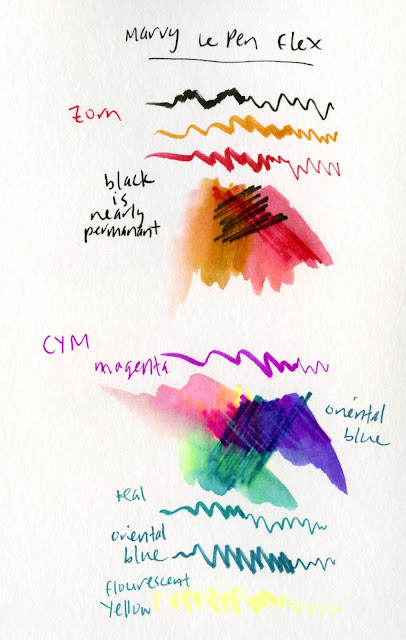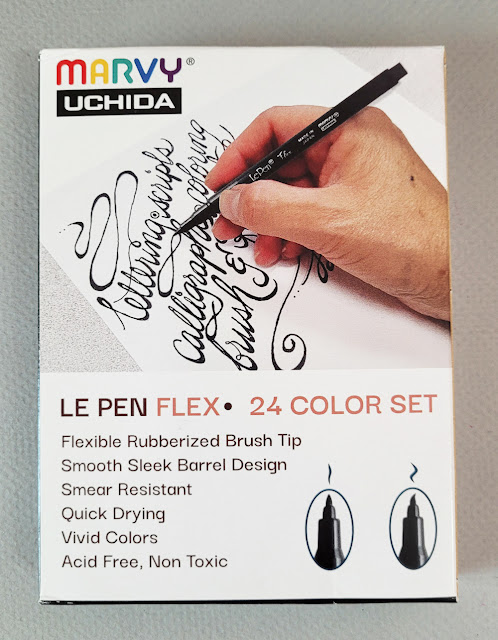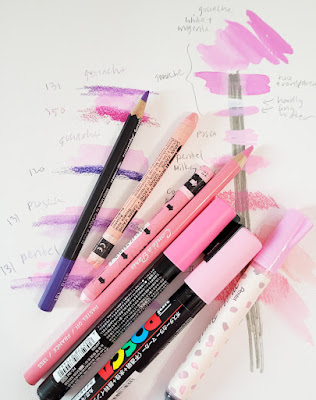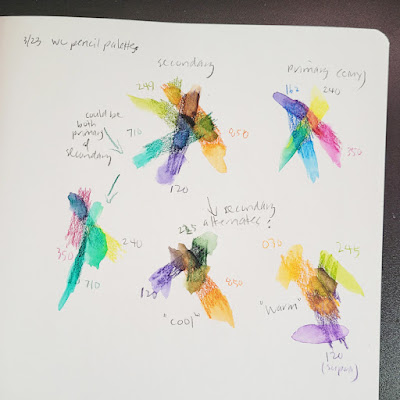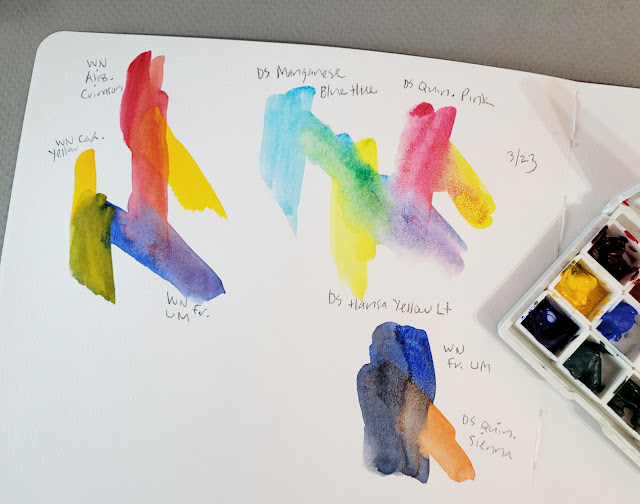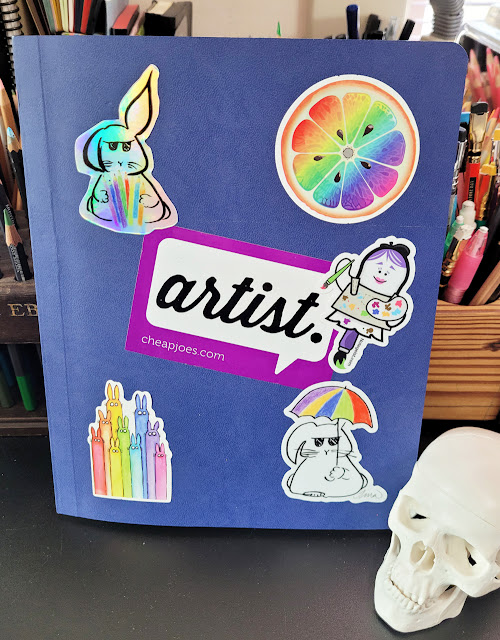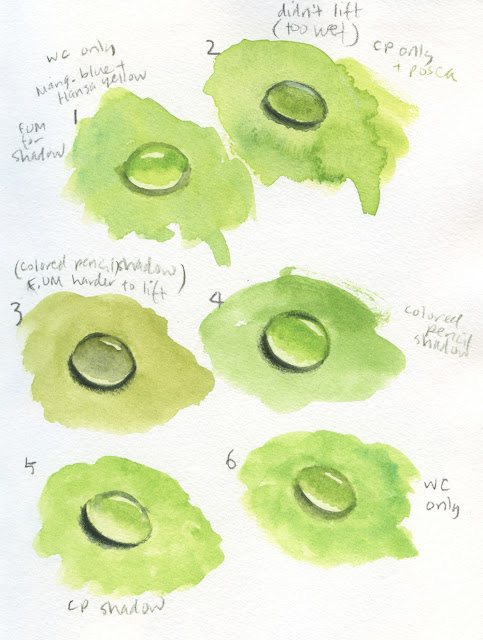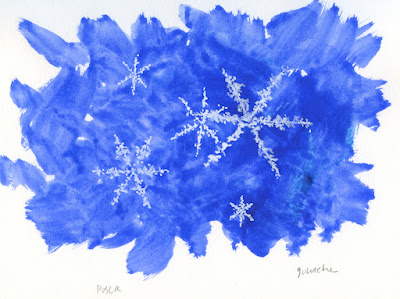 |
| 3/19/23 The Brothers (watercolor; photo reference) |
Shown here are the final assignments in Kathleen Moore’s Winter Sketchbook + Watercolor class.
For the snowy mountains (above), I used my own reference
photo of The Brothers in the Olympic Mountain range. Although I’ve sketched these
peaks several times during neighborhood walks, this was the first time I used a
photo. Since I took the photo from at least a hundred miles away, I had to enlarge
it a million times to see much. But maybe that's a good thing – I had to guess
at most of the shadow shapes, which kept me from obsessing about accuracy as I
sometimes do.
The next lesson was a snowy scene (below) that included a
winding stream reflecting dusk light (reference photo provided by Kathleen). Demonstrating
her painting using ink for some details, Kathleen encouraged us to try the
same. For the background trees, I used my favorite Sailor fude fountain pen and Platinum Carbon Black ink. The edges of the stream and
tree reflections needed to be very dark, but I didn’t think I would be able to
get them dark enough using watercolor, so I used the pen again. I like the
combination of ink for details and paint for larger areas.
 |
| 3/19/23 ink and watercolor (photo reference) |
Although I am happy with the results, it feels too “finished”
to qualify as a sketch. I find this to be one of the biggest quandaries of
using a photo reference (as opposed to sketching on location): I have all the
time in the world to capture that beautiful light that would have been gone in a
minute on location. Yet this painting seems to lack the freshness of any
attempt I could have made on location, where I would have been freezing and in
a mad rush to finish. It’s an ongoing dilemma.
For the reflective rain puddles assignment (below), I used
my own reference photo taken on a rainy morning near Green Lake. During Kathleen’s
demo, she showed how a subject and its reflection are equidistant from eye
level. Whaaat??! My brain exploded!
 |
| 3/21/23 Green Lake neighborhood (watercolor; photo reference) |
For example, if you measure the distance between the top of an
actual tree in your view and the corresponding point in its reflection, the
midway point will be your eye level. Once you know this, you can use that eye
level line to help you place other parts of the reflection so that they appear
correct. This is one of those things that explain why sketches can look awry, yet
it’s hard to pinpoint why they look that way.
Her reference photo showed a line of trees far off in the
distance near the actual horizon. I wondered if that tip works at any distance,
or only if the subject is close to the horizon? I tried to test it when I took
the photo: I walked up to the tree, and my eye level was just below its crotch.
But halfway between that point on the tree and the corresponding point on its
reflection would be near the pavement – which is not my eye level. Hmmm . . . I
guess it only works for subjects way out near the horizon.
This last painting was more satisfying to me than the stream
snowscape because I took less time and tried to be less precise. (And of
course, it was my own reference photo, which makes a huge difference in my
connection to the result.) It feels more like a sketch that I could have done
on location. Watercolor really is the ideal medium for capturing a wet day, isn’t
it?
Using watercolor again has confirmed for me that although it
may be the lowest-maintenance paint medium to get into (and therefore invites
many beginning urban sketchers to use), it must be one of the hardest media to
master. It’s no wonder I had so much trouble as a newbie sketcher trying to
learn to use watercolor while also learning the basics of drawing – both
while overcoming the general challenges of being on location. If I knew then what I know now, I never would have started out with something as challenging as watercolor!
Despite my ongoing frustrations, I enjoyed Kathleen’s class and always appreciate her teaching style
and approaches. The class was an ideal re-entry to watercolor – challenging but supportive and certainly informative. I’m still not sure I want to return
to the mechanical baggage of using wet media in the field (fumbling with
palette, mixing tray and sketchbook in one hand while standing or always needing
to sit), but I’m encouraged to pursue watercolors further, at least at my desk.















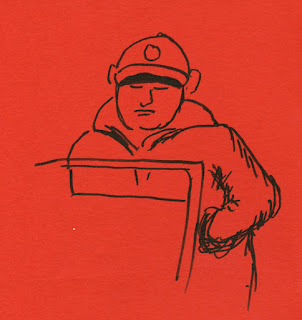




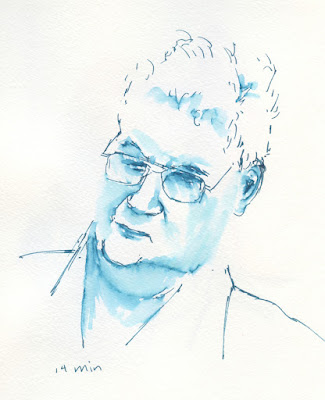
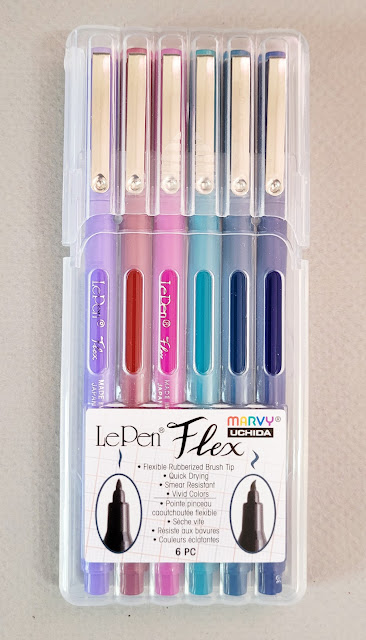


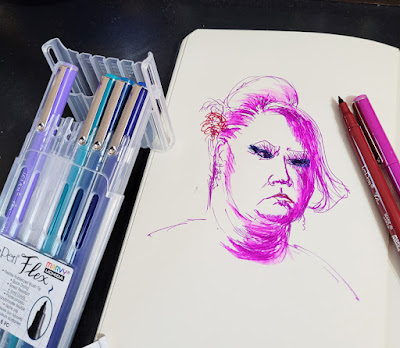

.jpg)

